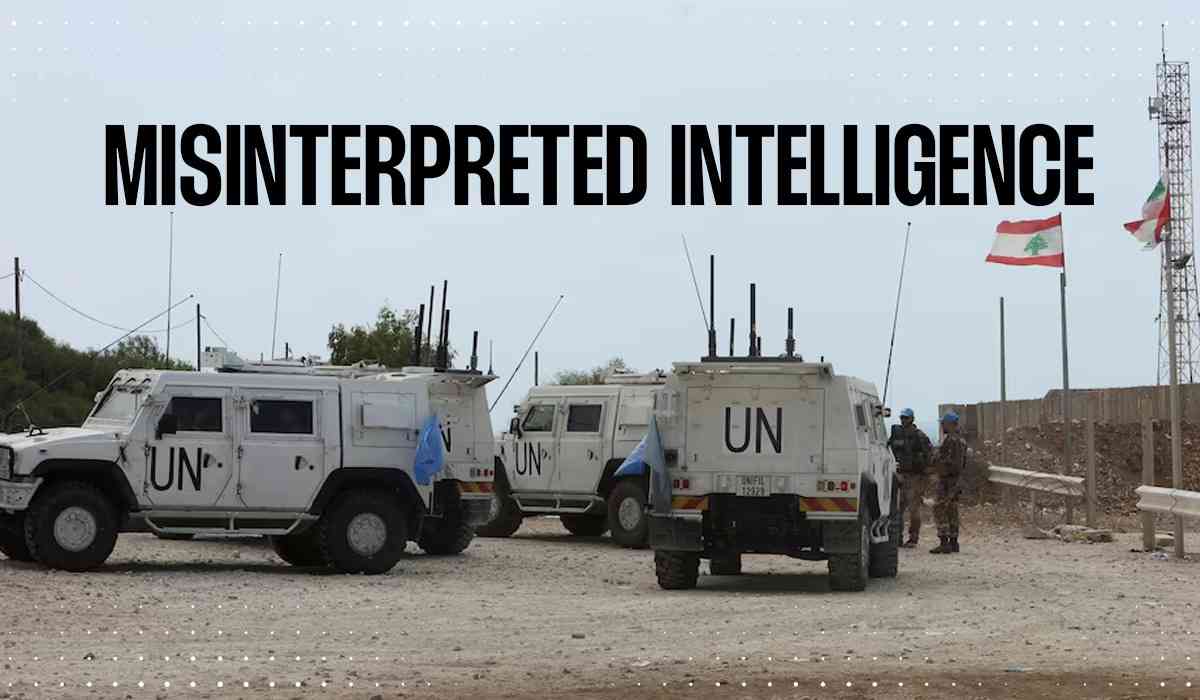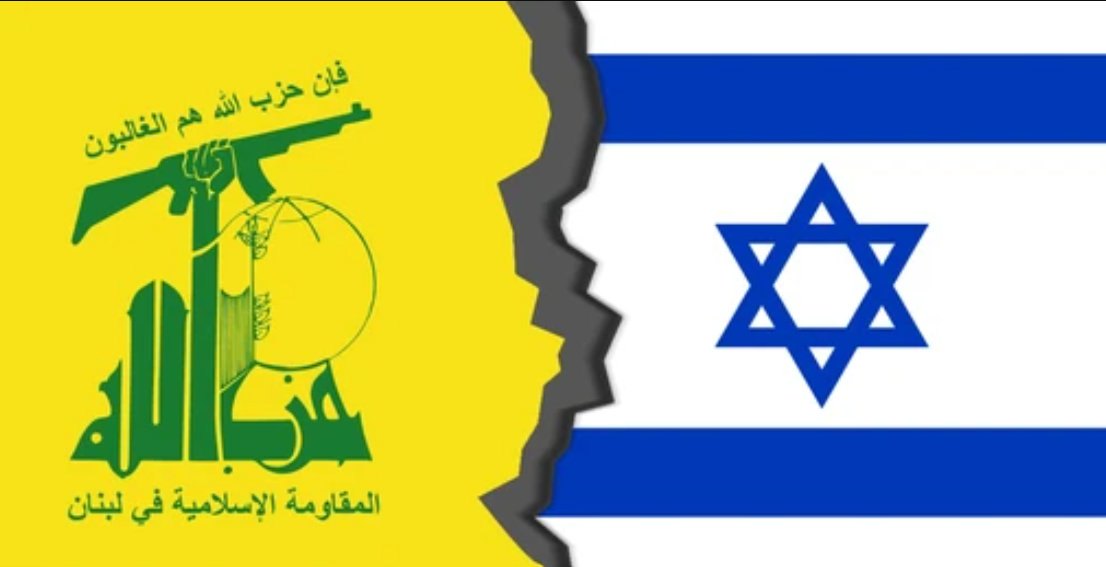
A dramatic diplomatic intervention by the US was just in time to prevent what could have been a crucial clash between Israel and Hezbollah in new geopolitical developments. The initiative was based on a false alarm of intelligence, highlighting the issues of clear communication and coordination between allies in a volatile region like the Middle East.
The False Alarm That Could Have Escalated to War
The case in question pertains to a potential Hezbollah attack which, according to the Israelis through their intelligence, was miscalculated. For decades, tensions have been rife between Israel and Hezbollah, which sometimes were lit off through short-term escalations. However, this particular case was distinct due to the magnitude at which Israel would react. The Intelligence revealed that Hezbollah was possibly making history in striking Israeli targets on their turf. While Israel readied for mass attacks, the government of the United States, based on its intelligence network, intervened to verify such information.
US Intelligence affirms no threat
The US intelligence community appraised the situation in terms of the diplomatic channel and intelligence-sharing agreements and concluded that the threat was neither this close nor heavy as conceived. In partnership with the Central Intelligence Agency and the Israeli Mossad agency, the US National Security Agency established that information was wrongfully interpreted based on technical glitches or circumstantial proofs rather than hard facts about an impending attack.
This information did cause a halt to the preparations by Israel regarding a retaliatory strike, which made room for further diplomatic talks. The swift and right appraisal from the US saved the region from what would have soon turned into a debilitating conflict that would result in loss of life and extensive damage on both sides.
Israel's Military Preparations: A Snapshot
It was Hezbollah, with all its military resources helped by Iran, that had threatened Israeli security. Even before the false alarm, Israel had already positioned troops and moved its Iron Dome missile defense systems in anticipation of rocket barrages. Its intelligence apparatus has been monitoring Hezbollah's activities in southern Lebanon, where the militant group maintains an extensive network of rocket launch sites and fortified positions.
After much consideration, Israel's government has decided to proceed with war. However, instead of a full-scale invasion, targeted airstrikes would be used. Still, it was an enormous risk, as the potential military confrontation with Hezbollah could involve other forces in the region including those from Iran and Syria.
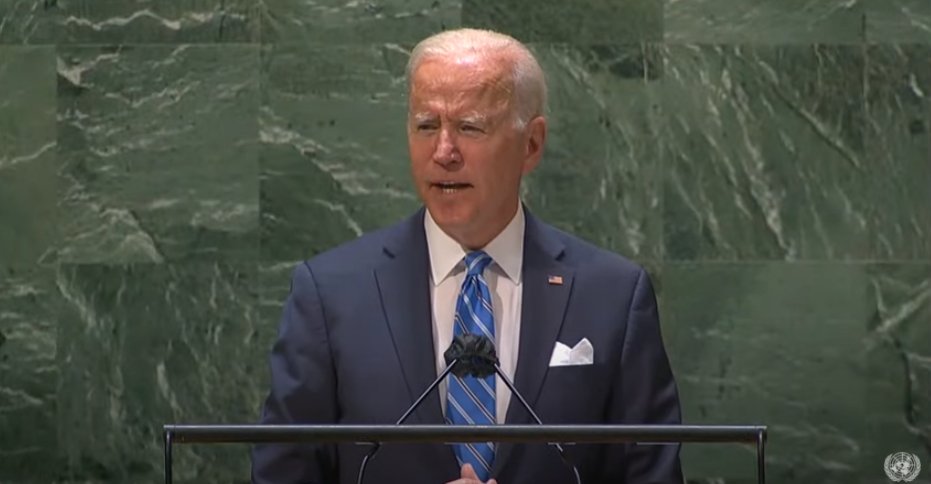
Image Source - X
Role of US Diplomacy in the De-escalation
In this case, US diplomacy played a key role. High-level talks between Israeli Prime Minister Benjamin Netanyahu and US President Joe Biden emphasized caution. The US urged Israel not to launch a war based on nearly unverified intelligence. American diplomats in concert with intelligence officials conveyed to their Israeli counterparts that an off-the-cuff war would have disastrous implications for Israel and the rest of the Middle East.
The United States also leveraged its long-standing relationship with Lebanese officials and Hezbollah's political wing as an indirect route to reaching the militant group. Even though Hezbollah is often an institution independent of the government of Lebanon in many regards, these diplomatic overtures provide a route for backchanneling that can even sidestep full-blown conflicts.
Diplomatic Channels Diagram
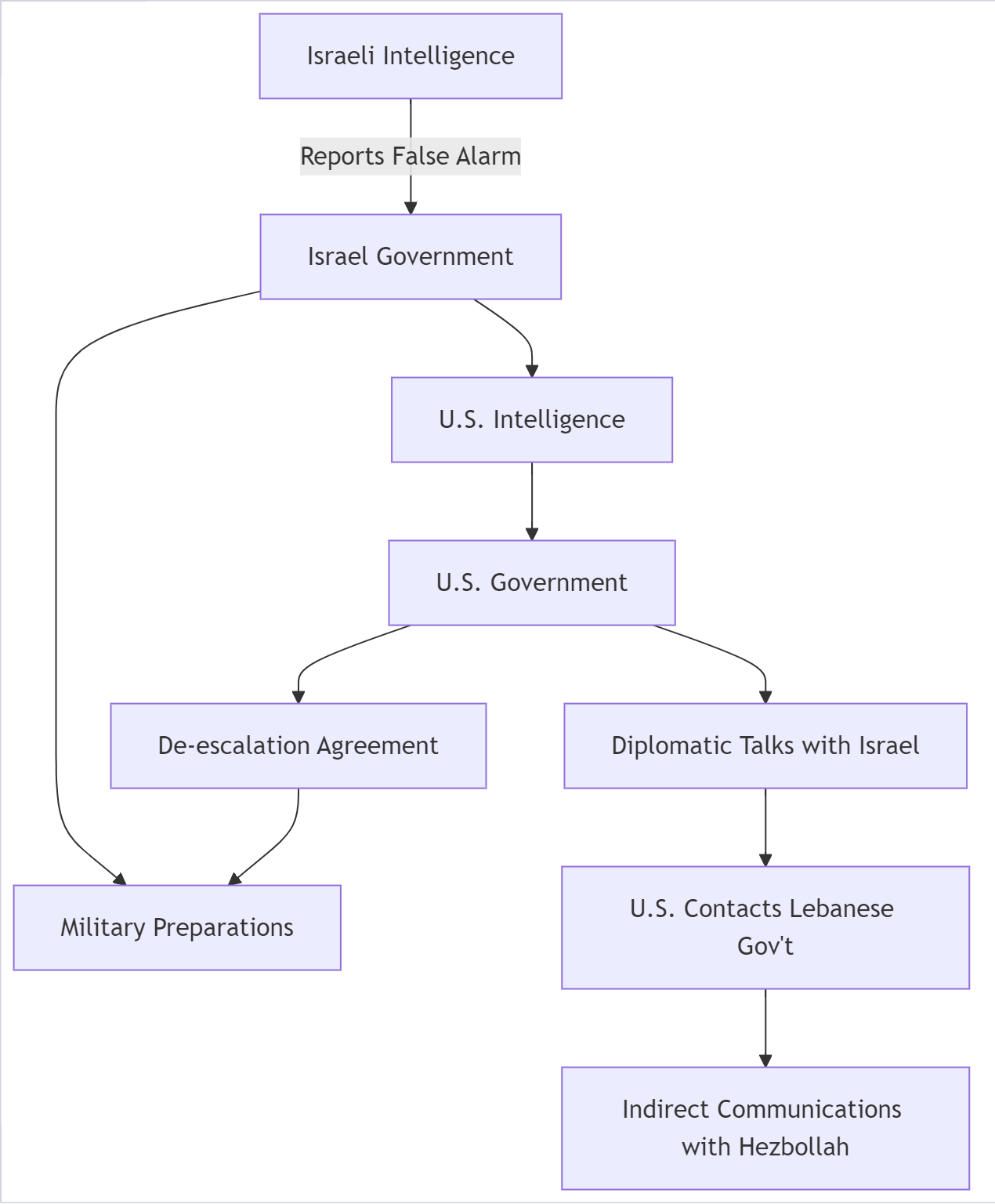
Broader Implications for Middle East Stability
This is just one of many microcosms of far broader challenges posed by the Middle East, where a single mistake or misreading of intelligence can evoke full-blown conflict. The US-Israel relationship, which forms the underpinning for close military and intelligence cooperation, is a critical factor in these matters. In the case of Hezbollah, stakes are higher still because involvement by it in any way could pull in Iran, extending the scope of the war to much broader dimensions.
Hezbollah, considered a terrorist organization by the US and numerous other nations, is an army with an estimated 150,000 rockets and missiles aimed at Israel. If that occurs, Israeli cities would very likely suffer under heavy bombardment, and civil casualties and destruction would be widespread. On its part, Israel would probably unleash all its might back at Hezbollah in Lebanon to target the infrastructure of Hezbollah, which would then result in severe casualties to civilians in Lebanon and the displacement of thousands of people.
Against this backdrop, further Russian entry into the fray makes conditions in the Middle East complicated for Israel and Saudi Arabia. The Saudi Crown Prince Mohammed bin Salman has expressed interest in normalization with Israel, but Russia will always be there with a strong diplomatic and economic hold on Saudi Arabia. All such moves by Russia, particularly in Syria and its closeness to Iran, another supporter of Hezbollah, make Moscow a key player in any wider peace negotiations or regional accords. In addition, the Saudi-Russian energy deal keeps the might of Moscow over the changing political map of the Middle East. This delicate balance of power between the US, Russia, and Saudi Arabia could make all the difference in the future of Israeli-Saudi normalization and regional stability.
In this regard, it has always been the United States in alerting people not to let that happen. The recent false alarm emphasizes improving communication and coordination, not only between Israel and the U.S. but also between regional actors who can diffuse the situation and calm it down even before it gets out of hand.
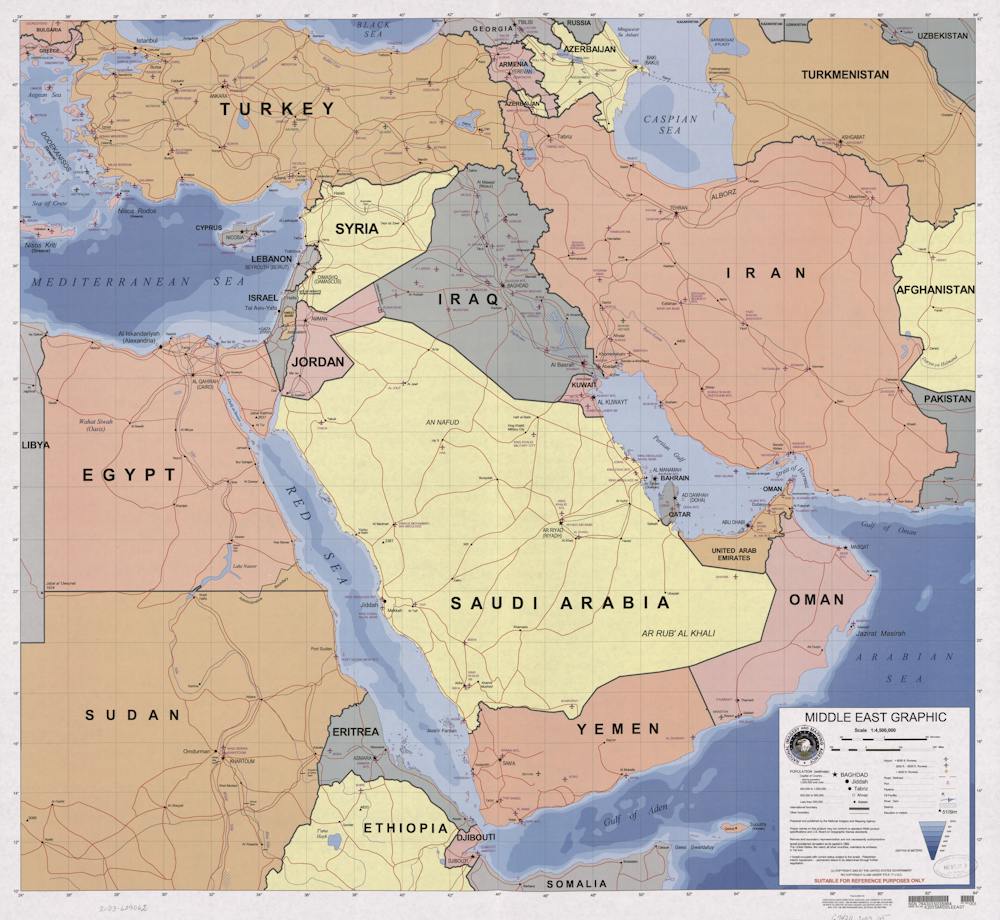
Middle East tensions
At least in the Middle East, where a miscalculated signal may readily incite war, intelligence-sharing and diplomacy play basic roles. The US intervention as a scenario that prevents war between Israel and Hezbollah is a clear case for the need to have verified intelligence and an easy balance of power hang in the way of balance. As long as Hezbollah is a threat to the State of Israel and as long as tensions continue between Iran and Israel, war is very probable. But in this latest instance, it suggests that war is not necessarily inevitable, and with proper diplomatic intervention; it is quite impossible to avoid such wars at least by careful gathering of intelligence.
With inputs from agencies
Image Source: Multiple agencies
© Copyright 2024. All Rights Reserved Powered by Vygr Media.

